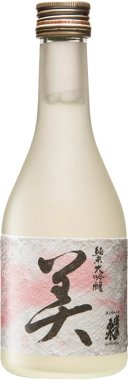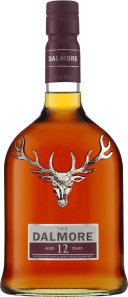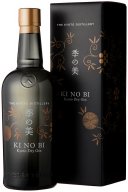TOGOUCHI BLENDED BEER FINISH JAPANESE WHISKY
Houraisen Bi Junmai Daiginjo
Meaning beauty in japanese, Bi is one of Houraisen's flagship sake's. It is a very elegant style of the highest grade of sake, Junmai Daiginjo. Tank matured for 10 months at 10 degrees in order to have a rounder and more mellow character, it has a nose that indicates sweet fruits with the palate showing good balance between the gentle acidity and the sweet fruit flavours.
Nikka Coffey Grain Whisky
A unique Japanese whisky showing enticing aromas of sweet exotic fruit, ripe pear, cherry, citrus notes and subtle floral scents. Intense sweet fruity flavours of pear and apricot nectar and caramelized papaya. Finishes sweet with bourbon vanilla. The Coffey Still is the worlds first patented continuous still invented by Mr. Aeneas Coffey in 1830. Masataka Taketsuru valued the feature of this type of still, which retains the flavours of ingredients and also creates a distinctive texture. Complex, sweet and mellow flavours in Nikka Coffey invites you back to beauties of grain whisky.
Nikka Yoichi Single Malt Whisky
Firm, powerful. A well-balanced attack gives equal footing to aromas of peat, smoke, spices, fresh fruit (melon, kiwi) and nuts (almond, walnut), which it delivers in spades. The mid-palate starts off with chocolate notes, but the peat soon takes the lead once again.The finish is long, silky. Extremely mature, it overflows with ripe fruit (pear, Mirabelle plum, apple). The peat starts taking on an herbaceous and malty character, while the salty flavours gives the finish plenty of depth and coastal freshness. The final nose offers menthol, spicy (coriander, dill) and earthy (leather, chestnuts) notes.
Nikka Miyagikyo Single Malt Whisky
Light in body, yet full of flavour, this is an excellent introduction to Japanese whisky. Elegantly fruity with sherry-cask character.Firm, lively. Malted barley is at the heart of the palate, coated in herbaceous, liquorice, spiced (ginger, cinnamon) and chocolate tones. Very elegant, the mid-palate also delivers plenty of energy and as it draws to a close, fresh tobacco leaves and coconut intertwine to create a natural symphony of aromas. The finish is long, soft. It evokes the scent of wilted roses. Fine tannins balance its tangy character (lemon, grapefruit). It lingers on notes of tobacco, spices (cardamom, ginger), toasted nuts and stewed fruits (apple, damson). The final nose reveals exotic notes (lychee).
Nikka Coffey Single Malt Whisky
The Dalmore 12 Year Old Scotch Whisky
Deep, golden mahogany in colour, Dalmore has a fantastic nose of orange, marmalade and aromatic spice. Elegant and rich on the palate with concentrated citrus, oloroso Sherry with hints of sweet vanilla pod. An amazing and lingering finish.
Togouchi Premium Blended Japanese Whisky
Togouchi Premium Blended Japanese Whisky is a blended release from Chugoku Jozo. Although it is blended in Japan, it is a mix of Canadian grain and Scottish Malt. Togouchi whiskies specificity is to be aged, blended and diluted in Japan. Scotch whisky barrels aging is held in a unique location, a 361 meters long tunnel dug in 1970 that offers ideal maturation conditions.
The Kurayoshi Pure Malt Sherry Japanese Whisky
The Kurayoshi Pure Malt Whisky Sherry Cask is a boutique Japanese whisky produced by the Matsui distillery..This is a 100% malted barley whisky, sourced from distilleries around Scotland, before making their way to Japan, where it is blended with Japanese Whisky, aged and cut to proof with the legendary volcanic stone filtered waters of Tottori Prefecture. This means that the profile is brighter that you would expect in this age-range. This brings out more herbal and citrus notes while maintaining a nice complexity. The real surprise is how well it pairs with food. Think of it like a “white Wine of Whisky” and enjoy.
Ki No Bi Kyoto Dry Gin
Ki No Bi Kyoto Dry Gin is a uniquely Japanese expression of the classic English spirit. Master Distiller Alex Davies of the Kyoto Distillery uses a spirit base distilled from rice and adds botanicals like yellow yuzu, hinoki (cypress) wood chips, bamboo, gyokuro tea, and green sanshō (Japanese peppercorn) berries that are designated into: base, citrus, tea, herbal, spice, and floral. Each botanical category is steeped into the rice spirit, which is then individually distilled before blending together. It is brought to proof using water from Fushimi, known for its purity. Ki No Bi translates to "the beauty of the seasons"













